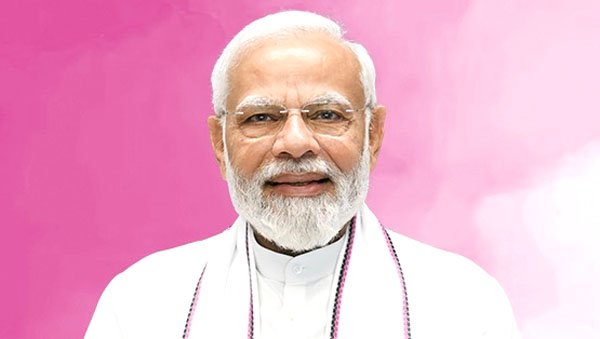- As soon as delimitation and census is done, a constitutional amendment bill for one country, one election can be brought in
Milind Muzumdar, Indore
The Nari Shakti Vandan Act, brought in the context of women’s reservation, has been passed in Parliament. The conditions of delimitation and census have been added to this bill. Home Minister Amit Shah also gave clarification in this regard in the Lok Sabha. He said that there is a provision of 33 percent reservation for women, but the Delimitation Commission will decide which the 33 percent seats will be.
Taking a dig at the opposition parties, he said what would happen if his government declared Wayanad as women’s reserve? The Home Minister said that the requirement of justice, Constitution and transparency is that the Delimitation Commission should be allowed to decide the reserved seats for women in the Lok Sabha. The first constitutional condition for delimitation is that it is mandatory to conduct a census. Obviously, if the condition of delimitation and census is not added to the Women’s Reservation Bill, then any person can file a PIL and get a stay from the Supreme Court. Therefore, keeping in mind all the legal aspects, the condition of delimitation and census has been kept in women’s reservation.
Obviously women’s reservation cannot be implemented before 2026 because delimitation is to happen this year. After implementing the Women’s Reservation Act, Prime Minister Narendra Modi can also bring the Constitution Amendment Bill of One Nation One Election. Preparations for this are also going on. The meetings of the committee have also started under the chairmanship of former President Ramnath Kovind. This committee will prepare a report on practical ways of holding simultaneous Lok Sabha and Assembly elections in the country as per the recommendation of the Law Commission. Apart from this, Common Civil Code is also an arrow in the quiver of Prime Minister Narendra Modi. This bill can also be brought as per the recommendations of the Law Commission. Apart from this, the Prime Minister can also bring amendments in the Religious Places Act 1991. This law was made during the time of Prime Minister PV Narasimha Rao. Under this law, the status of all religious places except Ram Temple in Ayodhya will be maintained as per the situation of 1947. This law was brought to avoid communal disputes. Its main objective was to protect the alleged disputed structures of Mathura and Kashi from tampering. Under this law, reconstruction cannot take place in Mathura and Kashi like Ayodhya. Obviously, there is pressure on Prime Minister Narendra Modi to remove this law. Obviously the Prime Minister has many arrows in his quiver which he is going to shoot, one after the other in the coming two years.
It is also clear from the strategy that Prime Minister Narendra Modi is following that after the practical implementation of women’s reservation, elections can be held simultaneously in the entire country in 2027 under One Nation One Election. Even if for this, midterm elections have to be held for the Lok Sabha and the Legislative Assemblies of some states? Overall, Prime Minister Narendra Modi is not one but many steps ahead of the opposition alliance. Obviously, Prime Minister Narendra Modi’s strategy has emerged as a big challenge for the opposition parties.
INDIA alliance entangled in internal problems
While Prime Minister Narendra Modi and BJP are giving shocks to political parties by taking major decisions one after the other, the opposition alliance is completely directionless in terms of leaders and intentions. INDIA Alliance has so far been able to decide only the name and steering committee of the alliance. Neither the name of the convenor has been decided nor has there been any preliminary discussion about seat adjustment. No face is being discussed for the post of Prime Minister either. On the contrary, the alliance is entangled in anti-Sanatan rhetoric. After all, the only weapon the opposition alliance has is caste-based census. This weapon has also been weakened by Prime Minister Narendra Modi through Vishwakarma Yojana and Rohini Commission. Only Yadav and Kurmi vote bank can be closed by opposition parties in the name of OBC category. Whereas BJP has prepared a vote bank of extremely backward people. Trends in Uttar Pradesh and Bihar show that the Yadav and Kurmi vote bank also works only when there is talk of the face of Akhilesh Yadav, Tejashwi or Nitish Kumar on the post of Chief Minister. Yadav and Kurmi voters also have faith in Prime Minister Narendra Modi in the Lok Sabha elections.











